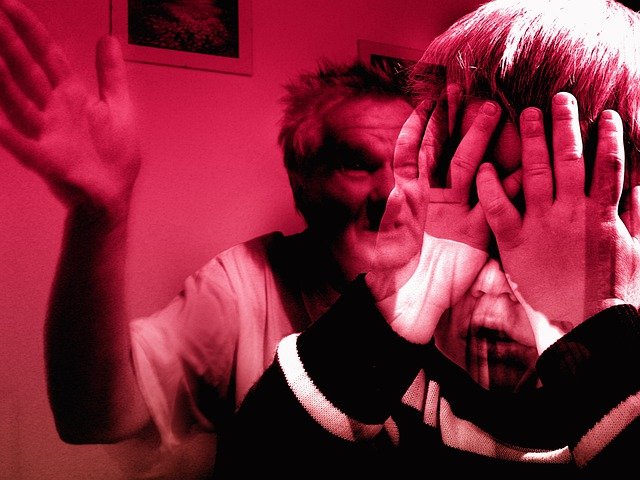Domestic violence laws govern what happens when one individual in a relationship intentionally causes harm to their partner. This article will discuss laws put in place to prevent as well as penalize this type of violence in New York.
Common Domestic Violence Laws in New York
Domestic violence is described as when one partner in a relationship demonstrates a pattern of violent behavior towards their partner. In this situation, the individual defined as the abuser maintains the power and control in the relationship. Any type of abuse falls under domestic violence, whether it be sexual, verbal, financial, emotional, or physical. Intimidation and threats also fall under this category.
There are several different criminal statutes associated with domestic violence. The following are some of the most common criminal charges related to New York domestic violence cases:
- Revenge Porn: The publication of an intimate and private image (New York Penal Law 245.15);
- Second Degree Aggravated Harassment: Threatening and repetitive phone calls or texts used to frighten and harass a victim (New York Penal Law 240.30);
- Stalking: Following a person while causing that person fear for their safety. This includes an offender possessing a weapon or threatening to use a weapon on the victim (New York Penal Law 120.45);
- Endangering the welfare of a child: This can include using drugs around a child, assaulting a person in front of a child, and striking a child (New York Penal Law 260.10); and
- Criminal mischief: Can include damaging a car, damaging furniture, and breaking a cell phone (New York Penal Law 145.00).
What are the Penalties for Domestic Violence?
Jail Time
Penalties for domestic violence, especially in New York, can be harsh and largely depend on the severity of the crime. Jail time can range from a few years in prison to a life sentence.
For example, if an individual is charged with a misdemeanor domestic violence charge, they can spend 15 days minimum and a one year maximum in jail. They may also be fined up to $1,000. On the other hand, individuals charged with a class A felony will spend the rest of their lives in prison. Someone who is charged with a class B, C, D, or E felony can spend four to 25 years in prison.
Probation
Another common penalty for domestic violence is probation. Depending on their specific circumstances, an individual can receive up to five years of probation for domestic violence charges. Probation is an extremely likely consequence in most domestic violence cases. Typically, probation is found in domestic violence cases that involve more minor counts of abuse, such as breaking a phone.
Restraining Orders
Alongside facing criminal prosecution, an individual can be named in an order of protection. This is is commonly referred to as a restraining order. A judge orders a restraining order, which prevents an offender from further abusing the individual who gave the restraining order.
What is Mandatory Arrest in New York?
In New York, there is now a law in place requiring law enforcement to arrest an offender when a domestic violence call is made. Due to new criminal law procedures and new police training, an offender can be arrested even if the victim requests otherwise. Some victims do not want to press charges, but law enforcement does not have to take that into consideration.
Many victims call the police in order to de-escalate the situation rather than to have their partner arrested. The case has to proceed even if the victim changes their mind or if the issue is resolved.
Why do Mandatory Arrest Laws Exist?
Mandatory arrest laws were put in place because victims who call the police on their offender may change their mind as time passes. Victims typically do not want their abusers to be arrested because of the fear of further abuse, financial dependence, or love for their partner.
As a result, law enforcement in New York no longer relies on the victim to make a domestic violence arrest. This poses an issue because the arrested individual is portrayed as the offender, when in actuality the victim could be just as violent. An automatic arrest can affect someone’s criminal record and overall future.
Frequently Asked Questions
Q: Are intimate relationships the only ones that fall under domestic violence?
A: No, intimate relationships are not the only relationships that fall under domestic violence laws. Although intimate relationships are the most common examples, domestic violence can occur between any two people who are in a close relationship. This includes children, siblings, parents, and in-laws.
Q: How do Courts Determine if a Relationship is Intimate?
A: When deciding if a relationship is intimate, a court will look at factors such as:
- How frequently the two people see each other;
- The nature of their relationship; and
- How long the relationship has lasted.
Q: Do restraining orders last forever?
A: No, most restraining orders are temporary and can last anywhere from three weeks to five years.
Q: Where can I speak to someone to discuss the domestic violence I have experienced?
A: If you have experienced domestic violence, please contact the National Domestic Violence Hotline at 1-800-799-SAFE.
Q: Can I file a lawsuit against my abuser?
A: Yes, you can file a lawsuit against your abuser. A victim can sue their abuser for the injuries that have been caused. This process takes place in a New York civil court.
Contact Pride Legal
If you or a loved one has been involved in a domestic violence case, we invite you to contact us at Pride Legal for legal counseling or any further questions. To protect your rights, hire someone who understands them.

